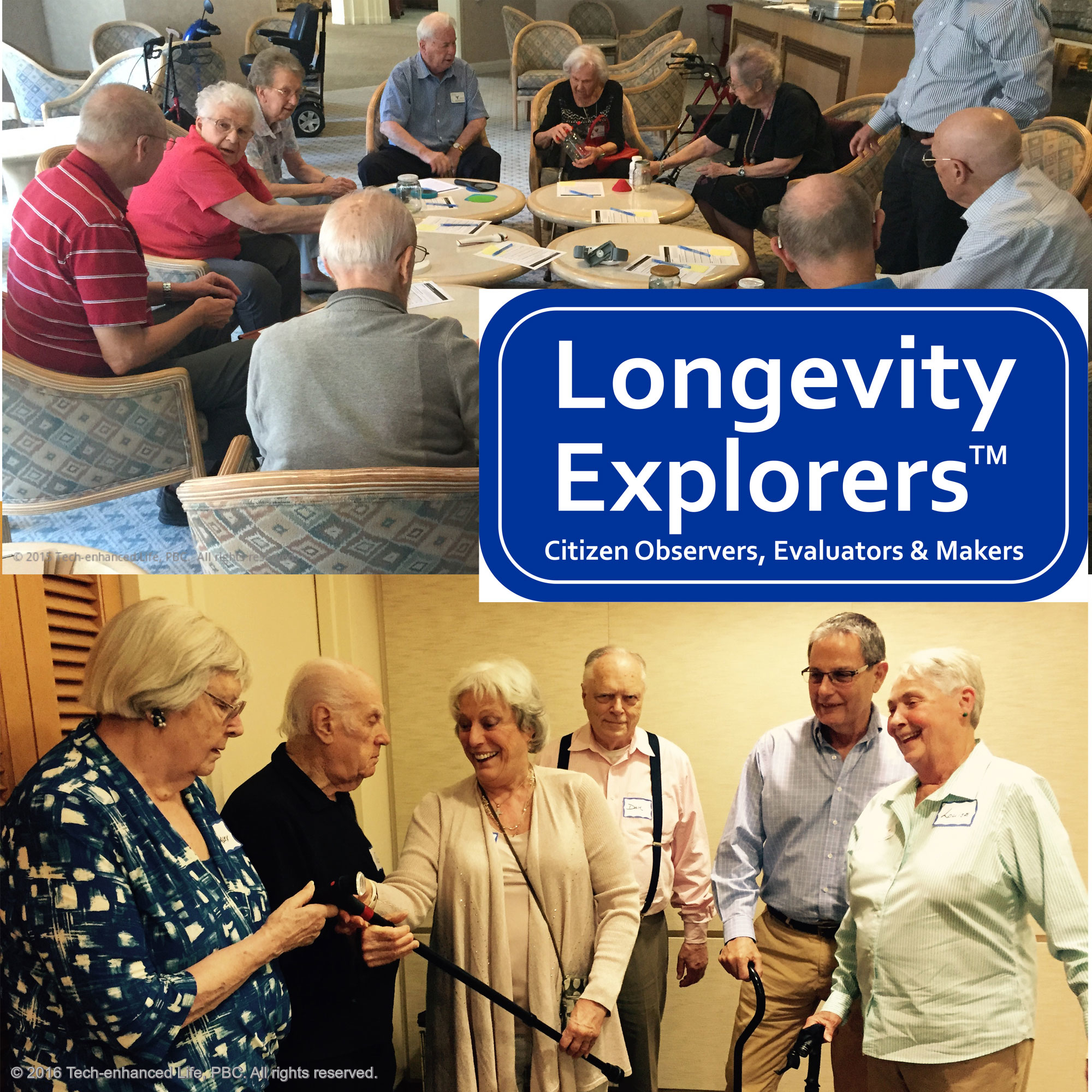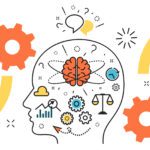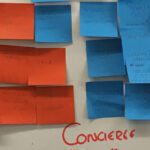By: Richard Caro | Posted: June 15, 2016 | Updated: February 17, 2025
This article was published in 2016 to summarize what we learned in the first two years of enabling the Longevity Explorer community. It is here as an archival record of that work.
Unmet Needs. Product Evaluation. Brainstorming & Ideation.
In our first 24 months, our 5 circles of older adults (Longevity Explorers) had more than 100 face to face circle meetings.
At these meetings we explore together unmet needs related to growing older; we try out, critique and compare various interesting products; and we engage in brainstorming and ideation for new and better products to help improve the quality of life as we age.
Almost 200 older adults (mainly between the ages of 70 to 95) have taken part in our explorations, and we currently have five active Longevity Explorer circles in various parts of Northern California.
We are quite excited about the results of our explorations, and this article is to share some of them. If you are interested in engaging with our explorers, or becoming one, we would love to hear from you.
Summary
Here are our key learnings. Each of these is discussed in more detail, with examples, in the main portion of this article.
- Unmet Needs: We have found that our explorer circles can do a great job of uncovering unmet needs relating to their daily life. We are developing quite a list of “problems that need solving”, many of which seem amenable to solution by a well designed new product.
- Product Explorations: Our circles are very interested in comparative product evaluations, and we have conducted several of these now. We think the idea of products for older adults, evaluated and recommended by a circle of older adults is a powerful concept.
- Brainstorming & Ideation: We have held several ideation and brainstorming sessions — designed to identify problems with existing products, and brainstorm a range of quite specific product improvements, and feature additions. Despite what one reads about innovation and ideation being something that “young people” do on behalf of older adults, we have learned that our circles of older adults are rather good at coming up with innovative and detailed ideas for better solutions to problems they care about.
- What people do today: Innovation often starts after you understand how people currently go about a task, and realize there are better ways to do it. A European researcher heard about our Explorer Circles, and asked us to discuss some specific “how we do it today” questions, relating to medication management. His response to our report: “This is very rare data indeed”!
- Sponsored Exploration: As word of our explorations has spread, we have been approached by companies that want to test out early stage product concepts on our explorers, and hear their thoughts and ideas about how to improve them. We recently did an experiment in which we conducted a special Sponsored Exploration, on behalf of a large Japanese company, to uncover unmet needs in a specific topic area, and critique some early stage product concepts their team had dreamt up. This Exploration produced results that were far deeper and richer than even we expected.
Background and Approach
In brief, we feel that there is an incredible opportunity to leverage novel technology to improve the quality of life as we age. And we feel there should be an important role for older adults themselves in making this happen. Furthermore, we think this role should be a far more engaged and active one than just commenting on the ideas others come up with. At the same time, many older adults are keen to engage in activities that help to add purpose and meaning to their lives, and have the opinion that their efforts are valuable enough that maybe they should share in any economic upside that results. The Longevity Explorer movement is an attempt to combine these two thoughts into a single initiative.
For an introduction to the Longevity Explorers, you can listen to this talk by Richard Caro, when he introduced the Longevity Explorers to the San Francisco Village, which has gone on to become one of our most vibrant explorer circles. For a written introduction to the philosophy behind the Longevity Explorers, you can read this “manifesto” created by the explorers themselves.
During the first phase of life of our community, we viewed the Longevity Explorer circle discussions as a bit of an experiment. We wanted to find out if participants would get excited about being part of these types of groups; discover the best ways to run the circles so they were both enjoyable and productive; and convince ourselves that we could generate “useful” outputs.
While along the way we have had some learning experiences, and some things that did not go so well, we now feel we have a model that works well in terms of operation, and the results that come out. And Explorers who are regular participants are very enthusiastic.
A note about our business model: So far, this initiative has been financed entirely by the investors in Tech-enhanced Life, which as a Public Benefit Corporation is allowed to put its mission of “improving the lives of older adults” ahead of profit. However, we hope in the longer term to develop a self sustaining financial model for our Explorer movement, and when we do, we plan that the Explorers themselves will benefit from any economic upside of the work we do together.
Uncovering Unmet Needs
We felt an obvious place to start our explorations was with the uncovering of unmet needs. After all, who better to uncover some of the unmet needs of older adults than groups of older adults themselves?
We have had many discussions about unmet needs of various sorts, and they have been audio recorded and can be found on this website in the Explorer Discussions section. These audio recordings add a depth of detail and a vibrant immediacy that is hard to capture in written summaries, and the recordings make an excellent source for those wanting to understand the nuances of thought of older adults like our Explorers.
At present, it takes some effort to sift through them. If you are interested in doing some mining of these discussions to learn about unmet needs of older adults, we can help point you in the right direction. Just contact us and ask for help.
Comparative Product Explorations
The type of exploration in which we look at, and try out, and compare products in a specific category has proven especially popular among our Explorers. The results of these comparative evaluations, which are on this website, have attracted readers from around the world.
Here are two examples of our comparative product explorations, conducted by the Longevity Explorers themselves:
These comparative product explorations provide an interesting citizen science complement to our more analytical analysis and exploration, done by our in-house team, such as the Guide to Personal Emergency Response Systems.
Ideation and Brainstorming
In parallel with our Longevity Explorer circles, we have done a lot of hands-on analysis of the product category known as medical alert systems (we prefer to call them personal emergency response systems). Most of this work was done by our internal analyst team (see our guide to medical alert systems here), but the Longevity Explorers were very interested in what we were doing and provided extremely useful insights into what features they did and did not care about, and why.
As part of a series of circle discussions about medical alert systems, we held several brainstorming sessions designed to uncover “what is wrong with the medical alert system you have today?“, and “what would the ideal medical alert system look like?“.
The brainstorming sessions demonstrated how effectively these circles could ideate and brainstorm. You can see a number of our brainstorming sessions and listen to the discussions (members only) in the Explorer Discussions section (link above).
How Older Adults Tackle “Task xx” Today
Understanding how people go about a task today, is a key step to developing a better approach to doing that task. Uncovering this sort of information about older adults is often hard. But for our explorers, who experience these things daily for themselves, it is easy.
A European researcher, who is a friend of one of our circle members from San Francisco Village, heard about our explorers and asked if we could discuss some specific “how we do it today” questions, relating to medication management.
You can listen for yourself to this discussion of medication management, in which we focused on the handful of specific questions of interest to this particular researcher.
Here is what he said when we sent him the results: “This is very rare data indeed!“!
Sponsored Exploration
As word of our explorations has spread, we have been approached by companies that want to test out early stage product concepts on our Explorers and hear their thoughts and ideas about how to improve them.
Initially we worried that introducing this type of company-focused discussion might somehow introduce an unwelcome element of infomercial into our circle meetings, and we discouraged the initial overtures. But as we and our explorers got more comfortable with the way our circles were working, we realized that there were ways to help other companies with our expertise, while still maintaining the independence and objective aspects of our normal circle discussions. And we realized that we could have a bigger impact by engaging with other organizations who needed our insights than by keeping them at arms length.
So, we decided to dip a toe in the water and test this service.
Quite independently of our normal monthly circle meetings, we held a special “Sponsored Exploration”. This took place at a location in downtown San Francisco we hired specially, rather than at one of our normal circle host locations, and we invited the members of all our Explorer Circles to participate if they wished. We got a lot of interest, and put together a group from four separate circles to be the brainpower behind this Sponsored Exploration.
One important detail of this sponsored exploration was that, unlike our normal monthly circle discussions, the results were private for the sponsoring company, and are not available for others to see or listen to. The sponsoring company paid a fee, and the participating explorers received a (modest) payment for attending (in the spirit of our participatory business model).
The goal of this special Sponsored Exploration was to uncover some unmet needs in a specific topic area on behalf of a large Japanese company (the sponsor), and critique some early stage product concepts their team had dreamt up. The results from this event were far deeper and richer than even we expected. We see this as a very promising model for future collaboration between our Explorers and companies who want to develop useful solutions to challenges associated with growing older.
If your organization is interested in a Sponsored Exploration, please contact us.
Hear Richard Caro Talk About the Longevity Explorers
View this video of Richard Caro introducing the Longevity Explorer project at the San Francisco Village, Sept. 2015.
Want to Engage with Us?
We are interested in working with organizations who would like to tap into the insights and creativity of our existing Longevity Explorer circles, or who think they might wish to sponsor a new Longevity Explorer circle in their neighbourhood. If you would like to explore how we could work together, please contact us to start a conversation.
Deep focused interactions. Knowlegeable, creative individuals.
A question that sometimes comes up is: “How do the Longevity Explorer circles differ from “just another focus group”?” Here are what we see as the differences.
Our circles meet regularly over many months, and each one has a core of participants who come regularly. The members all get to know each other and get comfortable having quite deep and personal conversations. They learn how to work together to have something come out the end that is a bit unique. And we find that the ability to go deeply into topics by letting discussions run over sequential meetings, and ideas bounce between circles, adds a lot of depth to the results.
Perhaps most importantly, the primary purpose of our Explorer Circles is to discuss things the Explorers care about. While we do sometimes talk about topics others ask us to weigh in on, our explorers have a personal stake and personal interest in what we discuss.
This is quite different from a one time focus group — comprised of people who don’t know each other, who are unknown to the facilitator, and who may be reticent to discuss personal topics — and where the topics may or may not be of real interest to the participants.
Our circle members self select themselves, based on their interest and enthusiasm for “making a difference”, and for engaging in these types of intellectually stimulating conversations. As a result, our circles are not necessarily “typical” of any specific target demographic (unless intellectual curiosity counts as a demographic). Nor are our explorers perfectly socio-economically diverse at present. In contrast, focus groups can be recruited to be as diverse or targeted as one wishes.
When depth and creativity and insight are important, we think our explorers have a lot to offer. But when diversity, targeted demographics, or breadth of opinion matter, other tools like surveys or even traditional focus groups might make the most sense.
Want to Become an Explorer?
It is important to note that Explorers can be anyone who has experience of life as one grows older. There is no need to be tech-savvy, or an inventor or anything like that.
Our current Longevity Explorers are excited about being part of this community for several different reasons. Here are the biggest reasons people joined our circles so far:
- It’s intellectually stimulating;
- We work with our peers to improve life for ourselves, and other older adults like us;
- We learn about useful gadgets, widgets and Apps;
- Maybe at some point in the future this initiative will generate revenue in excess of costs, and when it does the explorers will share in the economic upside (but please don’t join for that reason as that is in the future).
Learn more about the Longevity Explorers.
Thank You to Organizations that have Hosted our Circles.
We have piloted our Longevity Explorer circles at several locations in Northern California, and typically we have received quite a bit of help from an organization that “hosts” our circles. We want to say thank you to all the organizations that have helped with this experiment so far, including:
- The San Francisco Village;
- Eskaton;
- Saratoga Retirement Community;
- The Commonwealth Club;
- The Sequoias San Francisco;
- The Sequoias Portola Valley;
- Calvary Presbyterian Church, San Francisco.
*Disclosure: The research and opinions in this article are those of the author, and may or may not reflect the official views of Tech-enhanced Life.
If you use the links on this website when you buy products we write about, we may earn commissions from qualifying purchases as an Amazon Associate or other affiliate program participant. This does not affect the price you pay. We use the (modest) income to help fund our research.
In some cases, when we evaluate products and services, we ask the vendor to loan us the products we review (so we don’t need to buy them). Beyond the above, Tech-enhanced Life has no financial interest in any products or services discussed here, and this article is not sponsored by the vendor or any third party. See How we Fund our Work.



